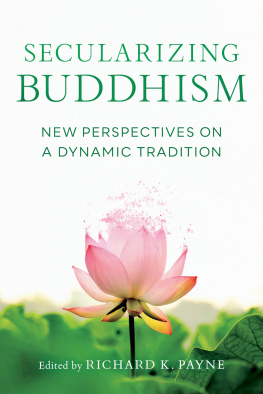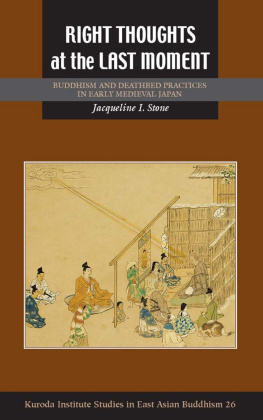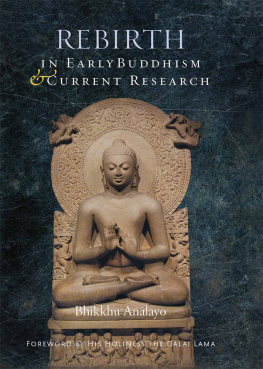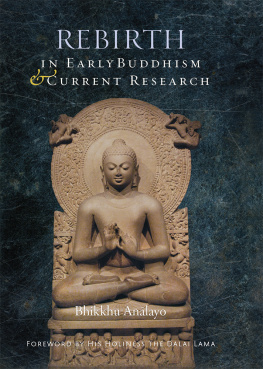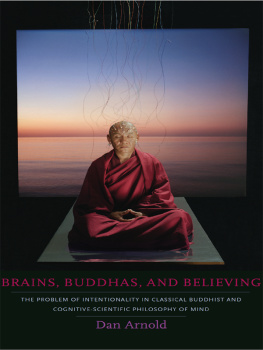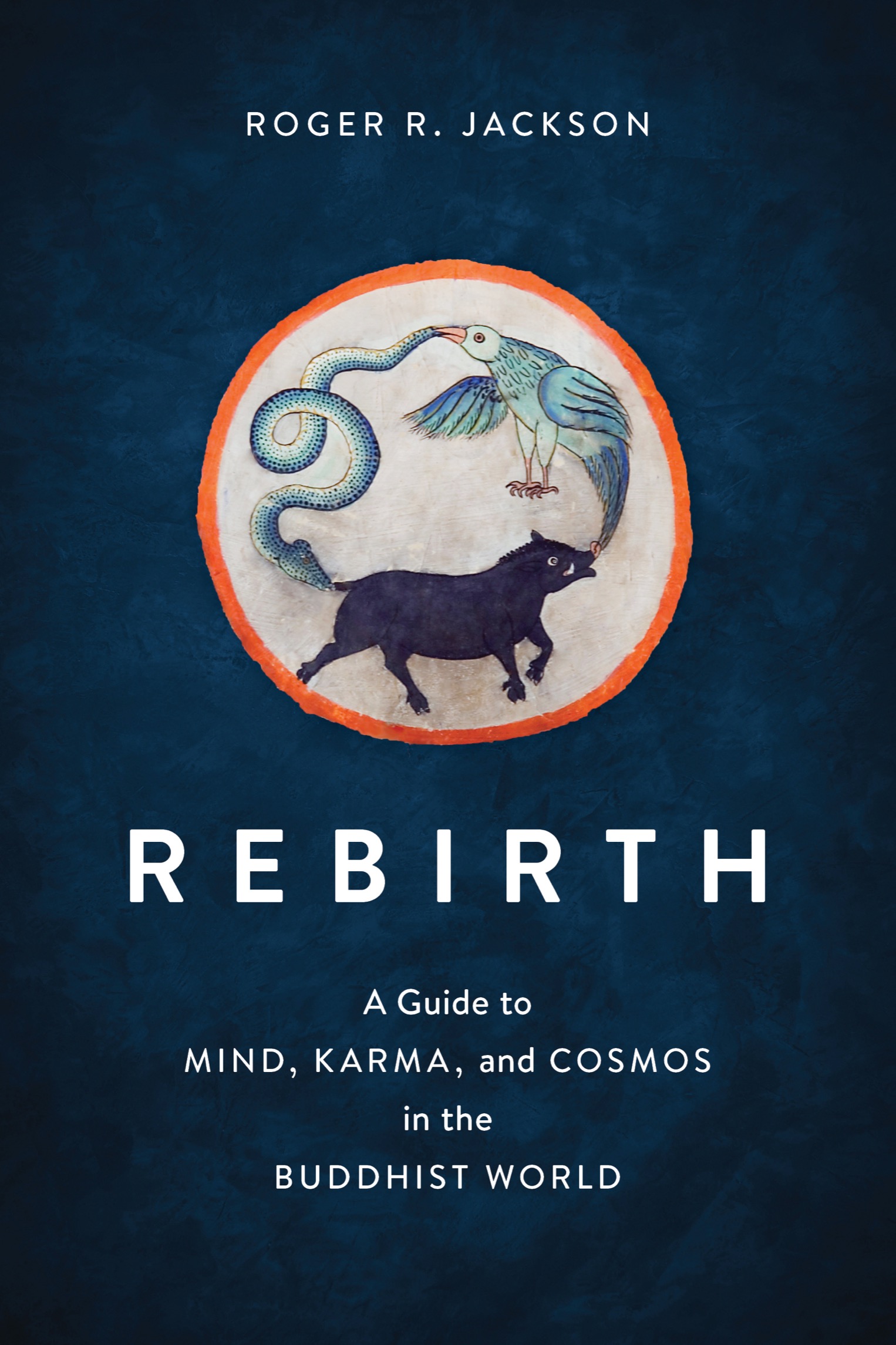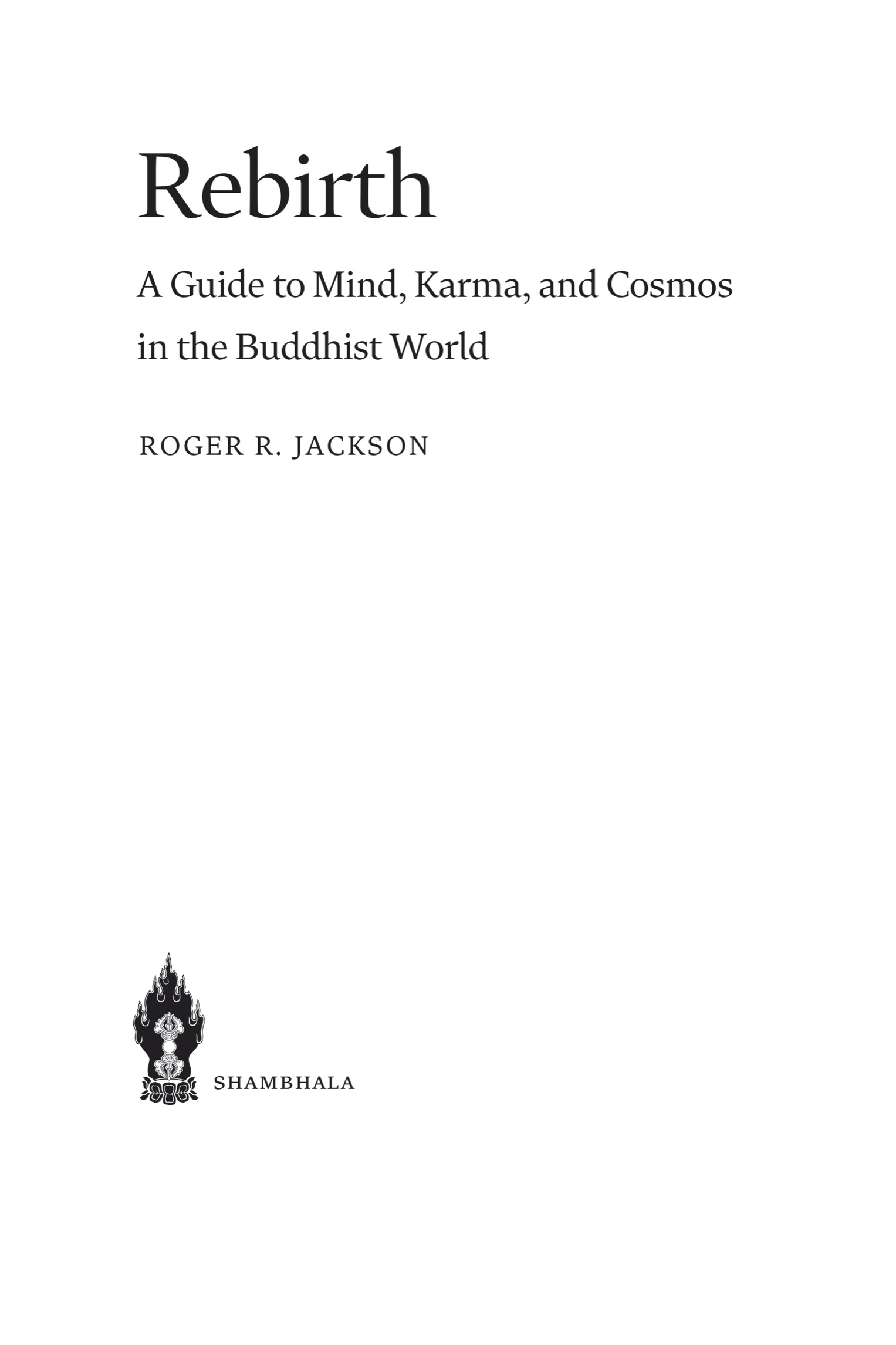Praise for Rebirth
This is the most comprehensive and scholarly study on rebirth and karma that I have seen and would, in my opinion, constitute an authoritative work on this subject for many years to come. I hope that Roger Jackson will encourage colleagues to work on Sinhala and Tamil translations of this book.
G ANANATH O BEYESEKERE , Emeritus Professor of Anthropology, Princeton University
The fruit of a lifetime of deep engagement with the subject, Roger Jacksons Rebirth traces the history of Buddhist ideas about reincarnation across the Buddhist world from ancient times to the present. This is the definitive work on the topic. No other work matches it in terms of breadth and depth. Written in lively and accessible prose, and evincing Jacksons tremendous erudition on every page, Rebirth is a major contribution to the study of Buddhism and the history of religions.
J OS I. C ABEZN , Dalai Lama Professor of Tibetan Buddhism and Cultural Studies, University of California, Santa Barbara
Rebirth is the definitive study of Buddhist thought on this topic. Roger Jacksons scholarship is impeccable, attending to a vast literature with meticulous attention to both text and context; the narrative arc takes us from pre-Buddhist Indian thought through contemporary Western Buddhist attitudes, exploring arguments for the reality of rebirth, the metaphysics of rebirth, and the role that rebirth plays in the larger Buddhist project. This is an extraordinary contribution to Buddhist studies.
Jay L. G ARFIELD , Professor of Philosophy, University of Melbourne
Erudite and eloquent, Roger Jackson takes the reader on a journey across the Buddhist world and across the centuries, from ancient India to contemporary America, setting forth both the mechanics and the poetics of rebirth along the way. For those who know little, you will learn much. For those who know much, you will learn more.
D ONALD S. L OPEZ J R ., Arthur E. Link Professor of Buddhist and Tibetan Studies, University of Michigan
While Buddhism has no dogma, it does rest on a unique view that necessarily includes acceptance of the reality of karma and rebirth. This is a complex subject; it is not possible to understand this Buddhist view without both distinguishing ultimate from relative truth and at the same time recognizing the inseparability of these two truths. While Roger Jacksons new book on rebirth perhaps wisely avoids this complexity at a theoretical and philosophical level, it makes an important contribution to the discussion by approaching it at a very practical level. I found Dr. Jacksons dissection of the different ways Buddhists approach the subject of rebirth to be not only interesting and provocative but also a valuable contribution to the way the subject can be understood and presented in the modern world.
D ZONGSAR J AMYANG K HYENTSE , author of What Makes You Not a Buddhist
Shambhala Publications, Inc.
2129 13th Street
Boulder, Colorado 80302
www.shambhala.com
2022 by Roger R. Jackson
Cover art: Wheel of Life Chinch Gryniewicz / Bridgeman Images
Cover design: Sarkar Design Studio
All rights reserved. No part of this book may be reproduced in any form or by any means, electronic or mechanical, including photocopying, recording, or by any information storage and retrieval system, without permission in writing from the publisher.
Shambhala Publications is distributed worldwide by Penguin Random House, Inc., and its subsidiaries.
LIBRARY OF CONGRESS CATALOGING - IN - PUBLICATION DATA
Names: Jackson, Roger R. (Roger Reid), 1950 author.
Title: Rebirth: a guide to mind, karma, and cosmos in the Buddhist world / Roger R. Jackson.
Description: Boulder: Shambhala, 2022. | Includes bibliographical references and index.
Identifiers: LCCN 2021009072 | ISBN 9781611809022 (trade paperback)
eISBN 9780834844247
Subjects: LCSH : ReincarnationBuddhism.
Classification: LCC BQ 4485 . J 33 2022 | DDC 294.3/442dc23
LC record available at https://lccn.loc.gov/2021009072
a_prh_6.0_139542201_c0_r0
In memory of Frank Barone,
19472020
dear friend and Dharma brother
Now you know, or perhaps you dont
and either way,
in the words of the nameless New York metaphysician,
What it is is; it is what it is
The wheel is turning and you cant slow down,
You cant let go and you cant hold on,
You cant go back and you cant stand still,
If the thunder dont get you then the lightning will.
R OBERT H UNTER , The Wheel
Souls cross ages like clouds cross skies, an tho a clouds shape nor hue nor size dont stay the same, its still a cloud an so is a soul. Who can say where the clouds blowed from or who the soulll be tomorrow? Only Sonmi the east an the west an the atlas, yay, only the atlas o clouds.
D AVID M ITCHELL , Cloud Atlas
Contents
Abbreviations
| A | Aguttara Nikya |
| AK | Abhidharmakoa (Vasubandhu) |
| AkBh | Abhidharmakoabhyam (Vasubandhu) |
| AS | Abhidhammathasagaha (Anuruddha) |
| ASm | Abhidharmasamuccaya (Asaga) |
| C. | Chinese |
| D | Dgha Nikya |
| GS | Guhyasamja Tantra |
| HT | Hevajra Tantra |
| M | Majjhima Nikya |
| MK | Madhyamakakrik (Ngrjuna) |
| MP | Milindapah |
| P. | Pli |
| PV | Pramavrttika (Dharmakrti) |
| Skt. | Sanskrit |
| S | Sayutta Nikya |
| SN | Sutta Nipta |
| T. | Tibetan |
| VM | Visuddhimagga (Buddhaghosa) |
Preface
In the early summer of 1974, just a few months after I had taken refuge and begun to study Tibetan Buddhism seriously at Kopan monastery in Nepal, I found myself at the Library of Tibetan Works and Archives in Dharamsala, India, listening to a discourse on karma and rebirth by the lama assigned by the Dalai Lama to teach the Westerners who flocked there, Venerable Geshe Ngawang Dhargyey, an accomplished scholar from eastern Tibet. To illustrate the workings of karma and rebirth, Geshe Dhargyeytranslated by a young, English-speaking reincarnate lama, or tulkuspun out a lengthy story about two brothers who had committed equally serious but slightly different offenses against others during their lives as humans, with the result that, in the next life, one was born as a red fish with a blue head, the other as a blue fish with a red headand each had to suffer endlessly the fear and hunger that dominate a fishs short and miserable life. Afterward, during lunch at the library canteen, I spotted the translator, and asked him about the story. Im assuming, I said, that Geshe-la meant that story to be taken symbolically and not literally, right? Oh, no, he quickly answered, its meant quite literally. I gulped, and returned to my lunch.
The common Buddhist claim that we all have undergone countless previous rebirths, and that we will continue to undergo rebirth as long as we do not overcome the delusions that bind us to the ongoing process of rebirth known as sasra, is difficult for most modern people to accept. If they are nonreligious, and take the scientific worldview as authoritative for understanding our world, they may well assume that because the mind is dependent upon the brain, and the brain ceases functioning at death, there simply is no life beyond the grave. If they are conservative Christians or Muslims (or, in many cases, Jews), they will assume that there




